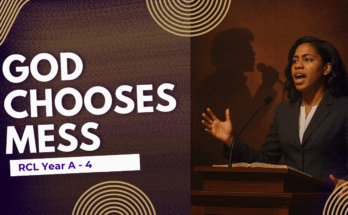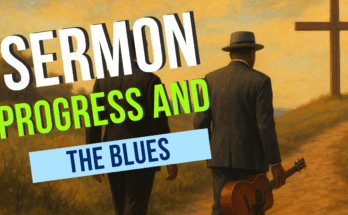As an Amazon Associate I earn from qualifying purchases.
 A while ago, Peter Mead ran a series on his helpful website on the subject of “Preaching Epistles.” People ask me to bring different perspectives, so here is one that I read from time to time.
A while ago, Peter Mead ran a series on his helpful website on the subject of “Preaching Epistles.” People ask me to bring different perspectives, so here is one that I read from time to time.
At any rate, one of his points for preaching epistles effectively is:
11. Preach, don’t commentate – Don’t offer your listeners either a running commentary or a labelled outline of the text. Make your points relevant to today, put them in today language, then show that from the “back then” as you explain the text. Don’t preach “back then” and then offer token relevance once people are disconnected and distracted.
I wanted to “riff” on that quote for a moment. If I understand the quote, I agree completely. To avoid confusion, I must first say that I do believe that one can attach ones points effectively in something that looks like a “running commentary” as you read the text. But this, I believe, is not what Mead is talking about.
Preach A Sermon Not A Commentary
What I believe Mead is getting at is the tendency to talk about all kinds of things that are not relevant to the point of the message (if you even have one). When we preach effectively, we have constructed a sermon around some tightly connected points. Don’t dilute the point by talking about “interesting facts” that have nothing to do with the message or the people. Just because it is true and in the text does not mean that you are to preach it in this message.
Preach Today
 Another important point that Mead is bringing out is the necessity of leaving the past. We must go to the past in the text to understand it, but we also must step into the here and now to present the truths to our members who live in the 21st century at this place. Mead succinctly gave a call to simply Don’t stay “back then.” Now this is not a call to ignore the past. That is important.
Another important point that Mead is bringing out is the necessity of leaving the past. We must go to the past in the text to understand it, but we also must step into the here and now to present the truths to our members who live in the 21st century at this place. Mead succinctly gave a call to simply Don’t stay “back then.” Now this is not a call to ignore the past. That is important.
Preach in the Language of the People
Some preachers like to demonstrate their knowledge of the Bible period of original languages by adding a lot of stuff to the sermon that is not really all that helpful.
I think knowing the languages are helpful, but does quoting a Greek word really help your people understand the point? In most cases no. Does referring to a technical theological term really help your people understand the point? Sometimes yes, the vast majority of time, no.
Preach to the people in front of you, they are not Bible scholars who have spent 8 years of schooling to get advanced theological training. They are people of today. They have lost their job this week. They have a spouse who has declared that divorce is imminent. They have children in jail. They have lost grandma. They have experienced real joy and real hurt this past week. PREACH TO THEM!
We must understand the past if we are going to make it relevant to today, but we also must recognize that we have some work to do before we can talk about the Biblical past in an understandable manner.
I am not totally sure if my riff on Mead’s thought is totally in agreement with his thoughts on homiletics. But I do believe that we agree that preaching is not just providing a commentary on the text. The preacher must form and fashion the insights of exegesis into a sermon that is designed to address the contemporary audience with the ancient text that God has given to us.
Amazon and the Amazon logo are trademarks of Amazon.com, Inc, or its affiliates.






I agree with you we must understand the past and also understand how we should apply for the present
And so in other words, make it plain Professor?
I agree 9 times out of 10 you’re preaching to people who are going through many trials and tribulations, and speaking in Greek can’t and want help them understand the text or scripture. I have preached many sermons and have had young men and young women cry out because I’m transparent. I want the congregation to know that just because I’m up in the pulpit don’t make me perfect or exempt from life’s trials and tribulations, all of us are ex-something. Ministers face temptations just like anyone else, we are all sinners saved by Grace. Thank you for this forum to speak your mind!
I would say that on any given Sunday 90% of the participants thinks that they are saved. So why would they need a preacher? They need a leader, an administrator whom they can trust with the investment that they are making. This is the way God has ordained the body to function. And if they have chosen the right person to lead them, their success will be enough to attract unbelievers. Faith is not a hope or a wish; it is the most dynamic understanding a human being can develop. This is why it is said that without faith it is impossible to please God. Think about what this statement means. I have spoken to God face to face, this happen after I had tried to teach this dynamic too my church. They would not hear it. But God quailed it buy breathing on me and anointing me within this understanding. The whole existence of humanity depends on the ability of true believers to hold back the onslaught of evil from overflowing the earth and when the evil overcomes the believers the end time prophecies will be initiated. Rev 6:9-11: 9. And when he had open the fifth seal I saw under the alter the souls of them that was slain for the word of God and for the testimony they held. 10. And they cried with a loud voice, saying, how long, O Lord, holy and true, dost thou not judge and avenge our blood on those that dwell on the earth. 11. And white robes was given to every one of them; and it was said unto them, that they should rest for a little season, until their fellow servants also and their brethren, should be killed as they were, should be fulfilled.
Excellent points, all. I find more and more having to decide what to take OUT of a sermon, because I can’t get folks to listen as fast as I would have to speak to fit it all in the time. ;-)
I AGREE WITH THIS POST 100% AND HAVE FOUND IT TO BE VERY HELPFUL.
THANKS, AND KEEP UP THE GOOD WORK
Yes I agree with your comment, in reality I always wondered why even mention the greek or the Hebrew, when in reality people are just saying amen to something they really don’t understand. I say this because when I was a new born I would hear preachers say, in the greek, and in the Hebrew it means this ect: I really didn’t know if it was true or not.
I believe its okay if your bringing a teaching but not a preaching.
Blessings
I agree wholeheartedly! Sometimes, we preachers get stuck on “what” we are trying to communicate and forget in the process that the listeners must really connect with the “why” of the text. Why, is this text relevant to my lifestyle and situation? How does it bring hope or change to my circumstances? In other words – why does this text even matter? It is up to the preacher to speak God’s truth in simple terms. Jesus came down from heaven, yet He did not speak in a kingly or heavenly language – He spoke the language of the common people.